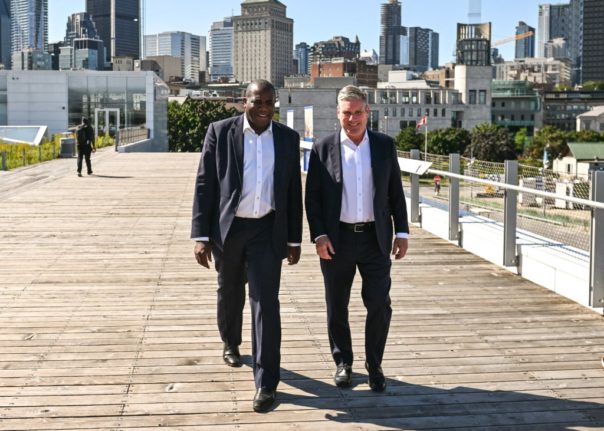Israel’s embassy in Spain said Monday it was “absolutely immoral” that “certain elements within the Spanish government have opted to align themselves with this ISIS-type terrorism,” in a reference to Hamas and the Islamic State group.
The remarks endangered the safety of Jewish communities in Spain, it added in a statement.
READ MORE: Israeli Embassy accuses Spanish government of ‘aligning with terrorism’
While the embassy did not specify who made the comments, the statement follows criticism over Israel’s response to Hamas’ attacks on October from several hard-left ministers in acting Socialist Prime Minister Pedro Sánchez’s coalition government.
Social Rights Minister Ione Belarra of far-left party Podemos on Saturday called on Sánchez to file a lawsuit for “war crimes” against Israeli Prime Minister Benjamin Netanyahu in the International Criminal Court for carrying out a “genocide attempt” in Gaza.
Israel declared war on Hamas after the Islamist group’s fighters broke through the heavily fortified Gaza border on October 7, killing more than 1,400 people, most of them civilians, and taking at least 199 people hostage.
Israel has responded to the attacks with withering air strikes on Gaza that have killed more than 2,700 people, mainly civilians and imposed a crippling siege on the territory that has left residents with dwindling supplies of food, water and fuel.
Israel has also demanded that residents of north Gaza leave for the south, hoping to clear the area of civilians in preparation for a perilous urban ground assault.

Spanish Foreign Minister José Manuel Albares said Tuesday he had spoken to Israel’s ambassador to Spain after the embassy issued its statement, which he called an “unfriendly gesture”.
“The final conclusion was that we were going to work together so the friendship between Spain and Israel, between the people of Spain and Israel, is maintained, as it has been until now,” he told a news conference following a weekly cabinet meeting, adding the issue was “settled”.
“In every government there are different opinions, much more so in a coalition government,” the minister said.
“The position of the government of Spain at the moment is very clear…We condemn the terrorist attack by a terrorist organisation, which is what Hamas is, against Israel,” he said.
While Spain recognises “Israel’s right to defend itself against this terrorist attack’, any action it takes “has to comply with international law,”
Albares said.
READ ALSO: How war in Israel could affect Spain



 Please whitelist us to continue reading.
Please whitelist us to continue reading.
Member comments